|
I will be presenting at Computers in Libraries 2024 on why academic libraries should teach more than just the databases.
Wednesday, March 13 at 3:30PM Academic librarians are often called to provide library orientation, aka, “teach the databases.” While important, these sessions are far from the only thing we can provide. In this session, I'll showcase why academic libraries need to broaden their reach. This can include providing webinars and workshops on transferable skills covering subjects such as navigating information, career development, and personal archiving. I'll highlight how getting out of our traditional lanes can enhance student skills, promote lifelong learning, and strengthen the role of the library within the community. Register with my speaker code (24SPKR) for $100 off early-bird rates.
0 Comments
Angela Hursh of Super Library Marketing is one of my favorite resources for staying in-the-know about library marketing. Her work is always relevant and personable. When she reached out and asked to interview me for a recent post, I couldn't help but fan girl.
She shared the profile a few weeks ago and I'm still blushing. You can read it here. Thank you, Angela! 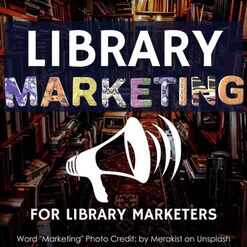 I recently recorded a guest appearance for the podcast Library Marketing for Library Marketers. In this show the host, Katie Rothley, talks to different people who work in library outreach and marketing. Our discussion covered projects I've done, customer service, and what outreach looks like in academic libraries. I also share a few of my "secrets" that aren't really secrets but just my modus operandi of doing things. It was a lot of fun and you can listen to my episode here. 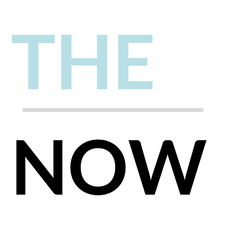 This post is coming at you much later than normal because I am on the West Coast for a library conference. Aside from the intense day of travel to get here (why do airlines give you such tight connections on opposite sides of the airport?!?!?), this has been a great trip. I've learned a lot and it's a nice break from parenting. (Love you, honey!) Here's what I'm working on:
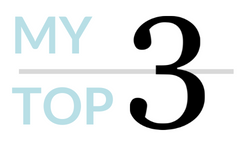 I like making lists. I’ve got shopping lists, to watch lists, to read lists, and a bullet journal full of to-do lists. The idea for a second weekly newsletter post kept rattling around in my brain. When I started to do some strategic planning, I got so excited with my brain dumping that I created a list of content which will take me more than a year to get through. My Top 3 will come out each Thursday evening. In these posts, I will pick a random category, define it with some backstory, and count down my top three items. Current categories on my list include white wine varieties, scents, regrets in life, kitchen utensils, songs, and mini golf themes. The possibilities are endless. (And some categories may crop up more than once as my views change.) In keeping with The Weekly Wrap tradition, items will be linked to help you learn more. The first three months of My Top 3 will be free for all subscribers. It will go behind a paywall on September 1. I have activated subscription rates at the Substack minimum of $5/month or $30/year. Also, I offer a no questions asked gift subscription option. I’m basically only doing this to fuel my own desire to pay for other newsletter subscriptions. The first issue of My Top 3 will go out tonight! We’re going to be looking at the best three books I’ve read but could never read again. Subscribe now! The pandemic is, once again, keeping the Computers in Libraries conference online this year. I will be speaking on March 31 at 2PM about the importance of internal communications. Sign up here for live and/or recorded options.
Libraries often spend money and time marketing and communicating to their users and patrons. How much time do you spend communicating internally? Kowalski shares the benefits of internal communications in breaking down traditional silos to foster collaboration and create a more cohesive team. She discusses activities that support all forms of work: in-person, online, and hybrid. She demonstrates the value of communicating in all directions, be it to a team of reports or to management and administration. The Internet Librarian Conference was supposed to be in person this year, but delta changed everything. Upside - you can now attend virtually! Sign up here for live and/or recorded options.
I will be speaking on Thursday, October 18 at 3pm on friendly-face marketing. Library anxiety is real. While many people adore the library and their librarians, there are just as many patrons who approach the library with trepidation. Friendly-face marketing is a method of outreach which helps put your patrons at ease by creating a personalized and positive customer service experience. Watson discusses connecting with community in new ways such as spin selling. He shares how to do it, the likely outcomes, and the best techniques. Kowalski shares methods for conducting outreach research that will help you develop small and actionable friendly-face marketing campaigns. She shares friendly-face marketing techniques to help your staff engage with patrons and shows how these campaigns and actions can both ease library anxiety and speak to non-patrons to help increase your community outreach.  I will be giving a webinar for ALA's Core Division on Wednesday, June 2 at 2PM (EST). Leading from Afar: Creating a Cohesive Remote Team Remote work and leadership are vastly different from the traditional office experience. It takes a balance of technology, management, and empathy. In this session, the presenter will share best practices for remote leadership that encourage collaboration and camaraderie. The session will identify, examine, and discuss techniques and processes for integrating various skills and activities into your leadership to help create strong and productive remote teams. This presentation will discuss the importance of adopting leadership skills that adapt to the needs of an organization’s individual employees including but not limited to working parents, differing levels of socioeconomic status, accessibility concerns, and home life. The presenter will also share how many aspects of remote leadership can be adapted to in-person and hybrid leadership. Learn more and register here.  Recently, I decided to turn my regular Sunday post, The Weekly Wrap, into a newsletter over on Substack. I greatly enjoy putting it together each week and I want to share it more broadly. I add some new content to the newsletter so you will get new material different from the blog post if you choose to subscribe. The Weekly Wrap shares anything that piques my curiosity. You can expect highlights from things I’ve read, watched, heard, found, did, or made. If it makes me go, “Ooo! That’s interesting!” it’s going to show up. Daily life has constant moments of learning which we can share to grow both personally and professionally. If you're interested, head on over to my substack page and click subscribe. Like this blog, the newsletter is totally free. Two of my fellow colleagues and I were recently published in College & Research Libraries News. We provided an article for the regular "Perspectives on the Framework" column.
Abstract During summer 2019, the four reference librarians at the University of the District of Columbia (UDC), an HBCU in the nation’s capital, met weekly to review and discuss each part of the ACRL Framework for Information Literacy for Higher Education. With our student population in mind, we had two goals: establishing a team-wide shared analysis of each frame and developing a collection of student-centered active learning activities, rooted in the Framework’s concepts, that could be mixed and matched during one-shot and embedded library instruction. Prior to this project, the librarians were using a limited group of library instruction activities that were not necessarily related to the Framework. During the project, the librarians found the Framework to be highly theoretical, making it challenging to identify concrete learning activities. However, by deeply engaging with the Framework, it was possible to create student-centered instructional activities that were rooted in the theory, and we were able to expand our repertoire of activities used in library instruction. We were also able to provide faculty with firm examples of how library instruction engages their students in information literacy and lifelong learning. You can read the full piece here. |
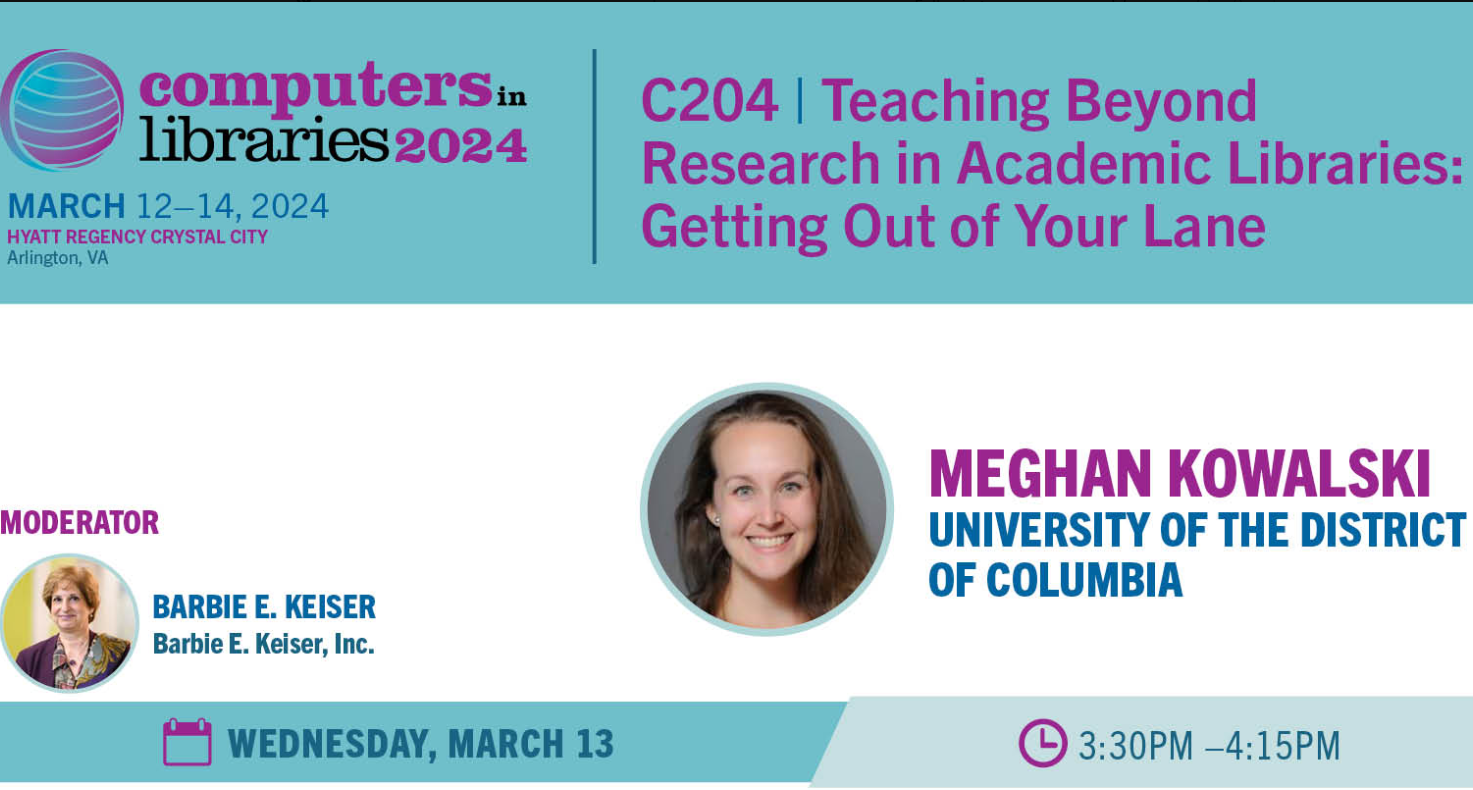
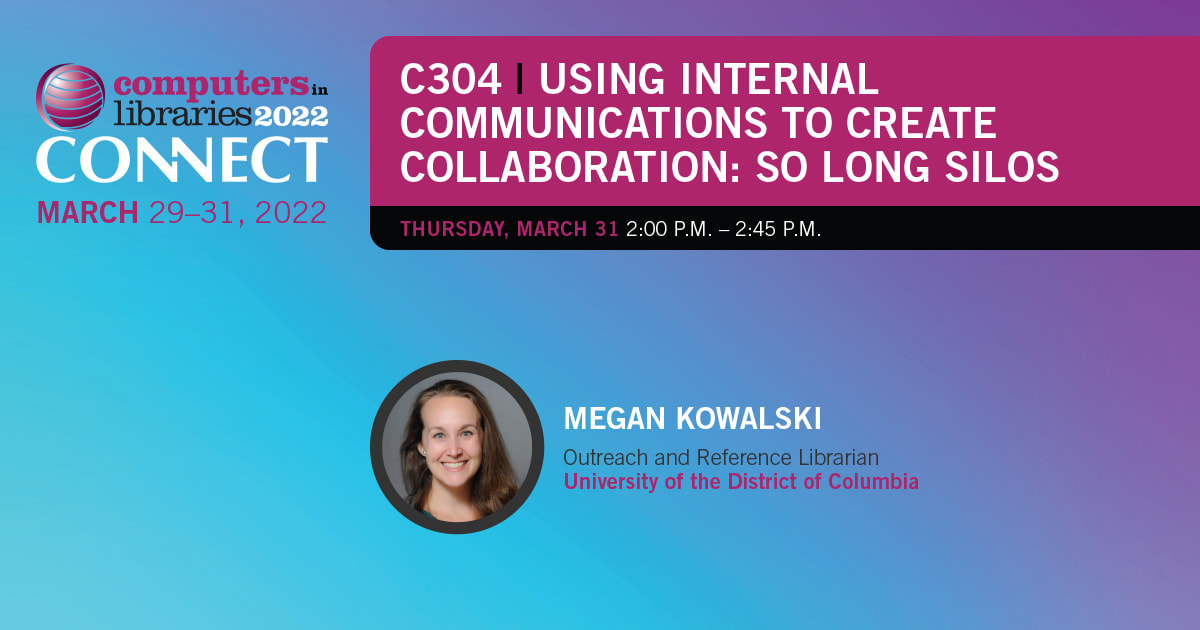
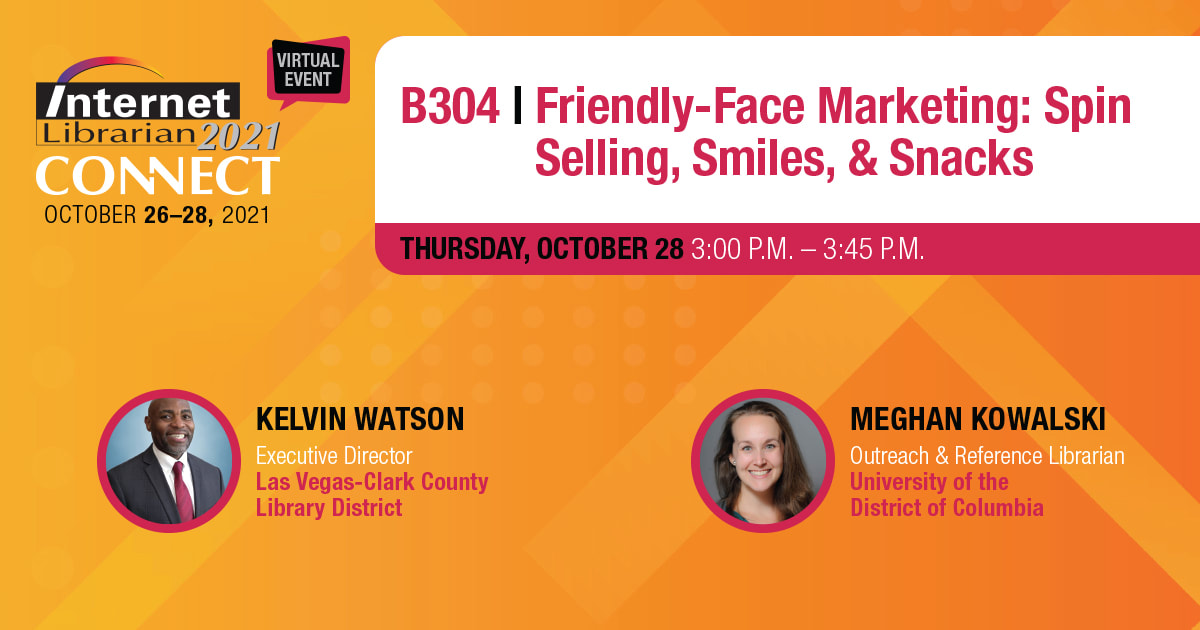
 RSS Feed
RSS Feed